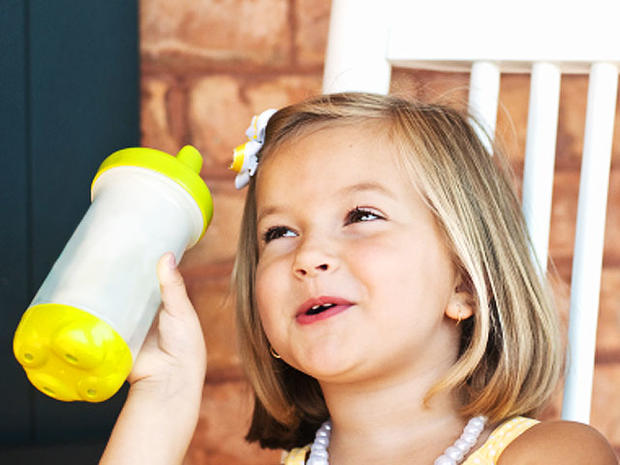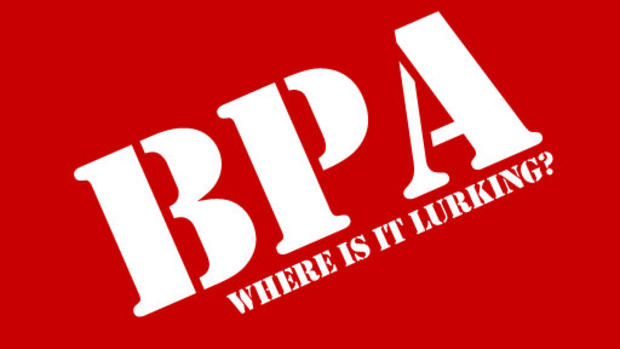FDA bans BPA from baby bottles, sippy cups
(CBS/AP) The controversial chemical BPA, or bisphenol-A, can no longer be used in manufacturing baby bottles or sippy cups, the Food and Drug Administration announced Tuesday.
The U.S. chemical industry's chief association, the American Chemistry Council, had asked the Food and Drug Administration to phase out rules allowing BPA in such products in October, after determining that all manufacturers of bottles and sippy cups had already abandoned the chemical due to safety concerns.
Pictures: BPA: 7 secret sources
BPA for lunch? 6 kid-friendly canned foods that flunked test
It is illegal for companies to use substances not covered by FDA rules.
"Consumers can be confident that these products do not contain BPA," FDA spokesman Allen Curtis said in a statement, adding that the agency's action was based on the bottle industry's phase-out of the chemical. "The agency continues to support the safety of BPA for use in products that hold food."
The chemical industry's request may help curb years of negative publicity from consumer groups and head off tougher laws that would ban BPA from other types of packaging because of health worries. BPA is often found in cans and plastics and other types of food packaging. BPA is also found in hundreds of other plastic items, ranging from water bottles to CDs to dental sealants.
Legislation introduced by some members of Congress would ban BPA nationwide in all canned food, water bottles and food containers. Chemical makers maintain that the plastic-hardening chemical is safe for all food and drink uses.
The Food and Drug Administration recently denied a petition from the Natural Resources Defense Council to ban BPA in food packaging, saying there's not enough evidence that the BPA health effects in rodent and animal studies might apply to humans.
Some researchers say ingesting the chemical can interfere with development of the reproductive and nervous systems in babies and young children. They point to dozens of studies showing such an effect from BPA in rats and other animals.
But the FDA has repeatedly stated that those findings cannot be applied to humans. The federal government is currently spending $30 million on its own studies assessing the chemical's health effects on humans.
About 90 percent of Americans have traces of BPA in their urine, mainly as a result of food and beverage packaging. The vast majority of canned goods in the U.S. are sealed with resin that contains BPA to prevent contamination and spoiling. Canned food manufacturers have used the chemicals since the 1950s. The practice is approved by the FDA.
In 2008, Wal-Mart Stores Inc. and Toys "R" Us said they began phasing out bottles, sippy cups and other children's items containing BPA. By the end of 2009, the six leading makers of baby bottles in the U.S. went BPA-free. In February, 2012 Campbell's Soup said it would begin removing BPA from its most popular soups, though it did not set a time frame
Recent research has linked BPA to behavioral problems in human children. A study last October in Pediatrics found pregnant moms with the highest levels of BPA in their urine were more likely to have daughters who were more aggressive, hyperactive, anxious or depressed. No behavioral effects tied to BPA exposure were seen in boys.
A study published in yesterday's issue of Pediatrics tied BPA found in newer tooth fillings to a slightly elevated risk of behavioral problems in kids such as depression and anxiety.

